Vango F10 Project Hydrogen Tent review: this innovative tent is as as packable as a loaf of bread
The F10 Project Hydrogen from Vango is one of the very lightest and smallest one-man 'air' backpacking tents around – here's our review
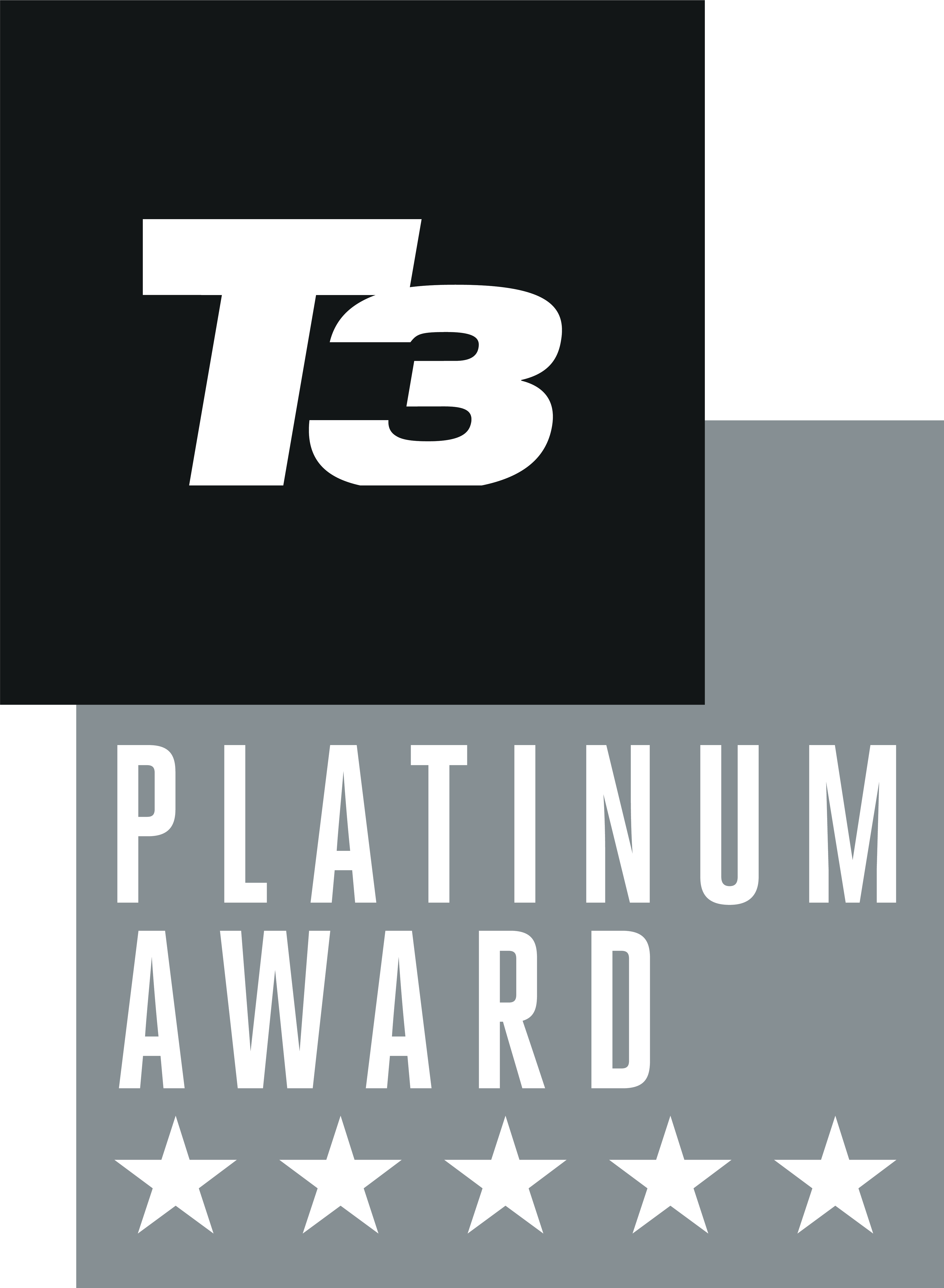
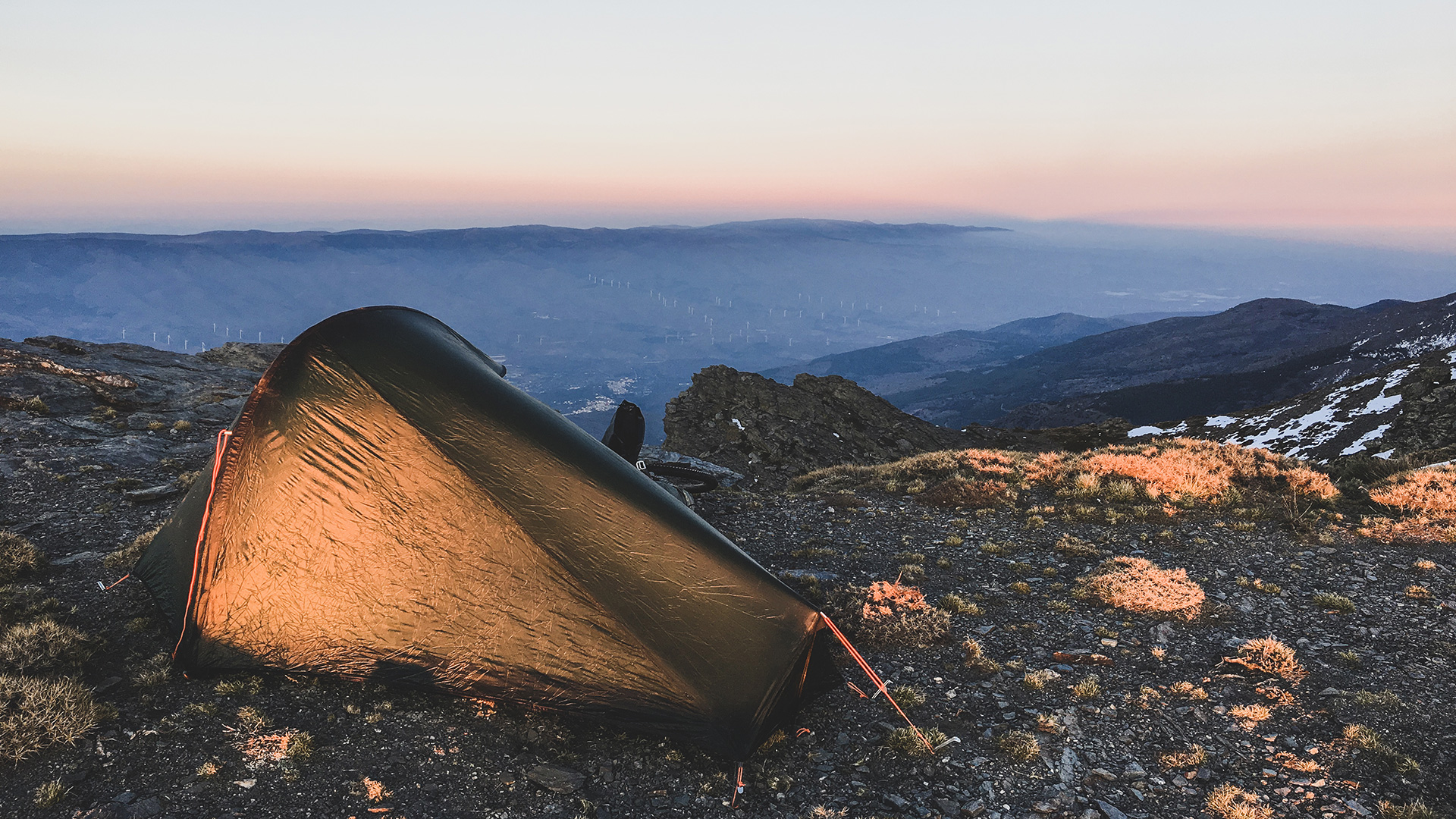
Vango's F10 Project Hydrogen is one of the lightest and most compact backpacking tents on the market, with its innovative design and 'air' pole system – yet still delivers plenty of room for one person.
-
+
Perfect for fastpacking
-
+
'Air' poles are quick to pitch
-
+
Unequalled in weight and size
-
+
Good room for one person
-
-
Expensive compared to other one-man tents
Why you can trust T3

When Vango launched the F10 Project Hydrogen in 2020, it was the world's lightest twin skin tent, which should give you an idea of how innovative the design of this one-man backpacking tent is.
Vango may be mostly known for its family-friendly larger tents, but the brand has definitely shown its prowess for going fast and light with this award-winning design – it's one of the very best backpacking tents around. As lightweight and compact as some camping mats, this is a tent aimed squarely at adventurers who pack light and travel fast in the great outdoors.
- Need something bigger? Here's a range of the best tents around now
- Packing light? Add one of the best lightweight sleeping bags
Vango F10 Project Hydrogen tent review: design and features
Vango F10 Project Hydrogen: specs
Pack size: 20 x 12cm
Weight: 680kg
Capacity: One-person
Bedrooms: One
Porches: One
Pitch time: 10 minutes
The whole point of Vango's Project Hydrogen is to be as barely-there as possible – this compact little tent is one of the lightest backpacking tents on the market. Packed away, the Project Hydrogen is tiny – about the size of a large loaf of bread – and will fit into the smallest of rucksacks or bike panniers, making it perfect for bikepackers, wild campers and mountain marathon racers who value every single gram they can save when they're on the move.
The Project Hydrogen is an 'air' tent, and pitching it involves using an included bike pump to inflate AirBeam poles, which save on weight but are still surprisingly sturdy, even in bad weather. The tent may be small but there's good living space for one person, with a porch to store kit and enough room to sit up inside. The dark pine green colourway Vango has chosen makes the Project Hydrogen really blend into the landscape, which wild campers will appreciate.
Vango F10 Project Hydrogen tent review: pitching
We were expecting big things from Vango's much-hyped Project Hydrogen – and it lived up to expectations on test. It's very impressive just holding the Project Hydrogen, which is the same size as some large camping mats or lightweight sleeping bags – it's hard to believe this small one-litre compression sack holds an entire tent.
Once out in the wild, it's the work of minutes to erect the tent with the included foot pump, and the pole structure (or rather, lack of one) feels strong and stable even in windy weather. Although this is a twin-skin tent (which makes it more weatherproof), both parts of the tent are pitched together, which further saves on time and effort. Titanium pegs and guy ropes also help keep the tent stable in a storm. It's also quick and easy to pack up the Project Hydrogen, rolling it up around its included bike pump and compressing it into its small stuff sack.
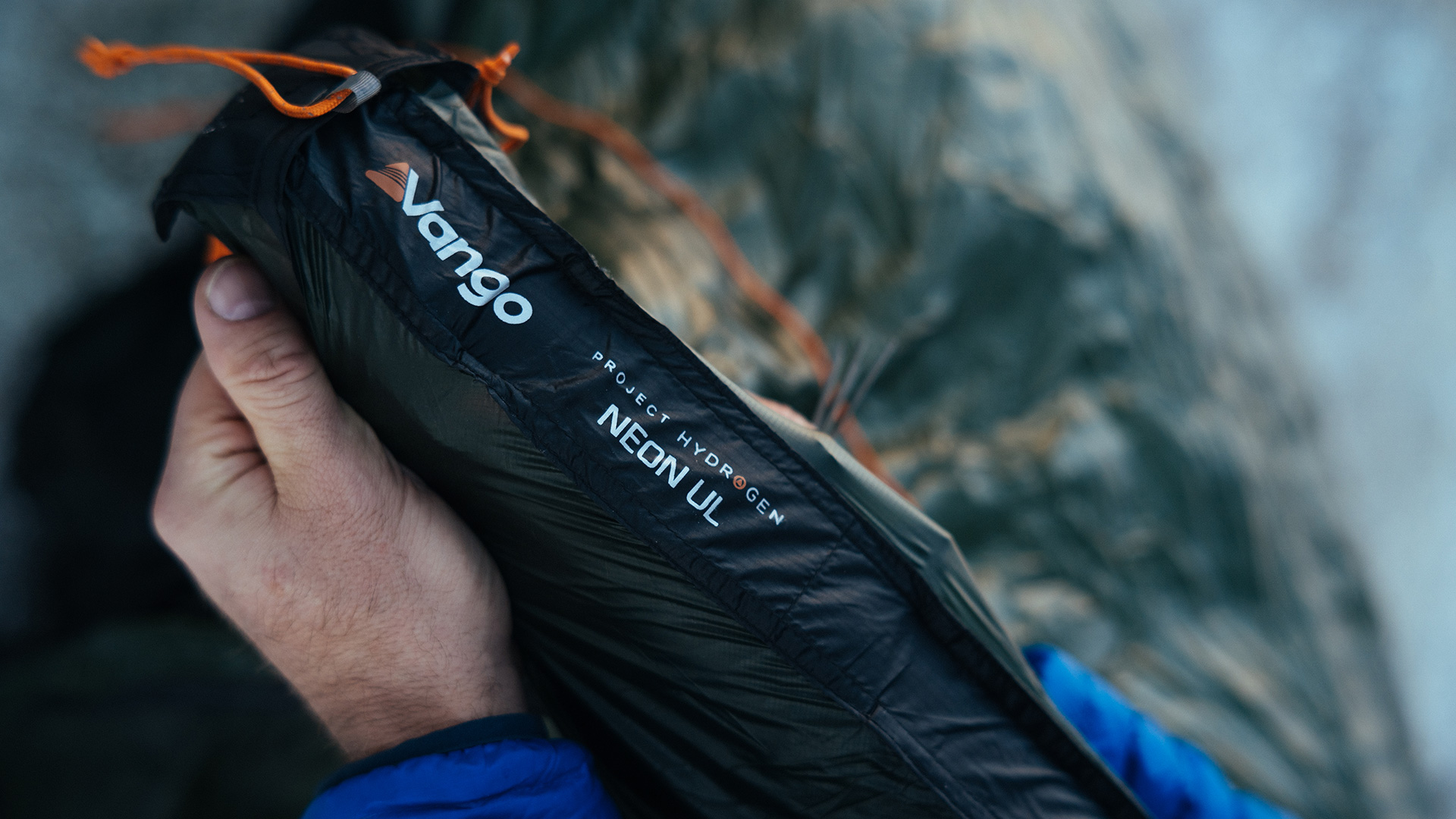
Vango F10 Project Hydrogen tent review: living space
Inside the Project Hydrogen there's space for one person to sleep without feeling like you're in a coffin, with room to sit up at one end and even a small porch for storing kit. If you usually end up bringing a bivvy bag along on fastpacking trips to save on weight and space, you're likely to be impressed by how much more space and comfort the Project Hydrogen offers without any added weight or pack size.
Get all the latest news, reviews, deals and buying guides on gorgeous tech, home and active products from the T3 experts
The porch is admittedly pretty small, and will only hold a rucksack without much room to spare, but it's still a useful extra space to have handy. While the bedroom is also small, it's definitely not as cramped as some tiny one-man backpacking tents and bivvy-style tents we've tested in the past, and once you're lying down and tucked up in your sleeping bag, the taller section of the tent over your head further helps give a decent feeling of space.
The zipped door of the Project Hydrogen is pleasingly wide for such a compact tent, which further adds to the airy openness of the tent and makes popping in and out when you're setting up camp much less stressful. A mesh inner door also means you can hang out in the tent in daylight or on hot evenings without feeling cramped – but without being pestered by midges and other pesky insects.
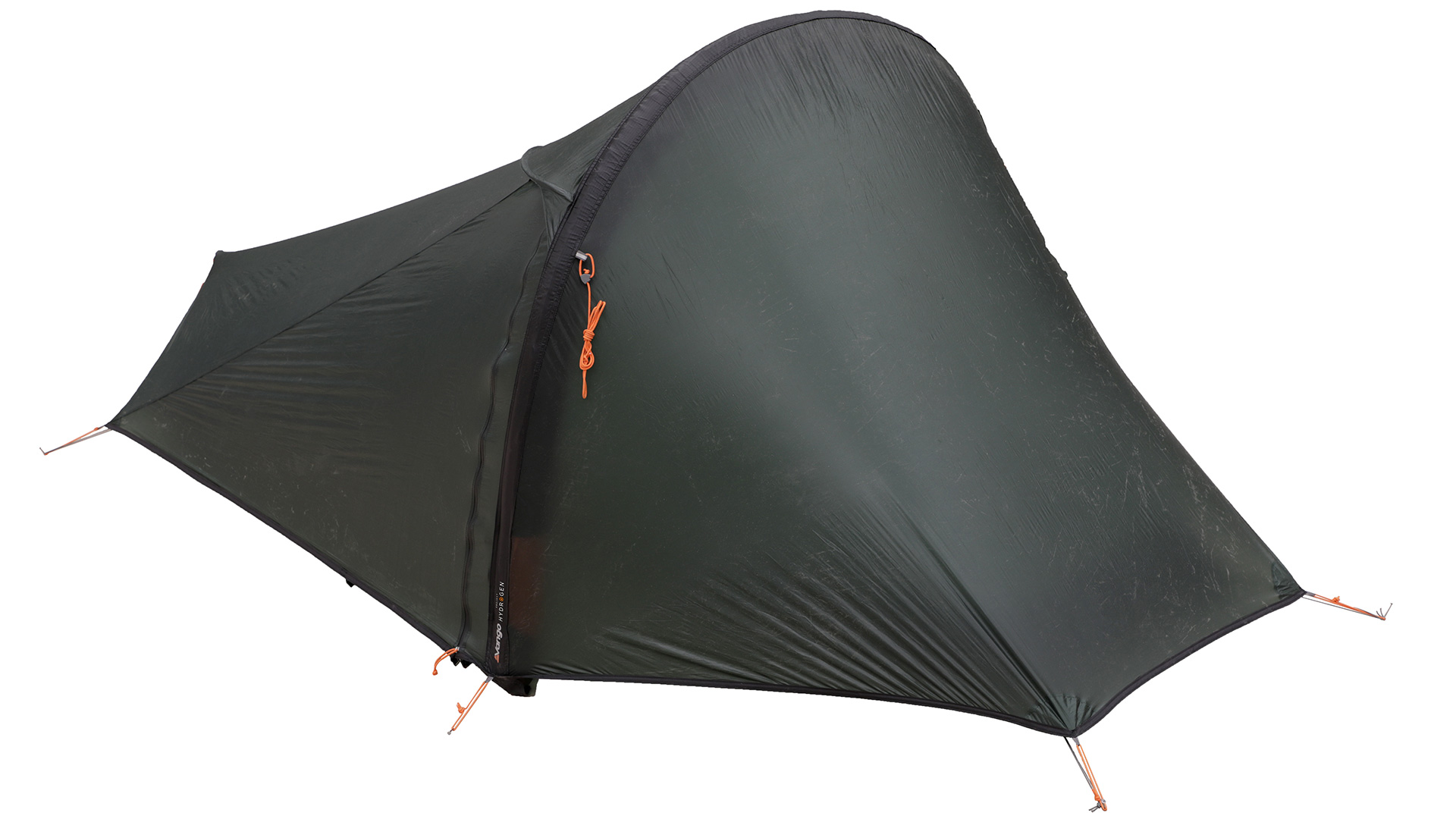
Vango F10 Project Hydrogen tent review: performance
The Project Hydrogen comes at a pretty eyewatering price tag when compared to other one-man tents on the market, but its great quality and thoughtful design really do shine through when you use it regularly. The groundsheet is tough and durable – no chance of water seeping through from the ground – and the flysheet, while lightweight, repels water effectively even in a heavy downpour. The low profile of the tent and its sturdy air pole system help it stand up well to high winds – this is a tent designed to be taken into the mountains as well as used lower down in the valley.
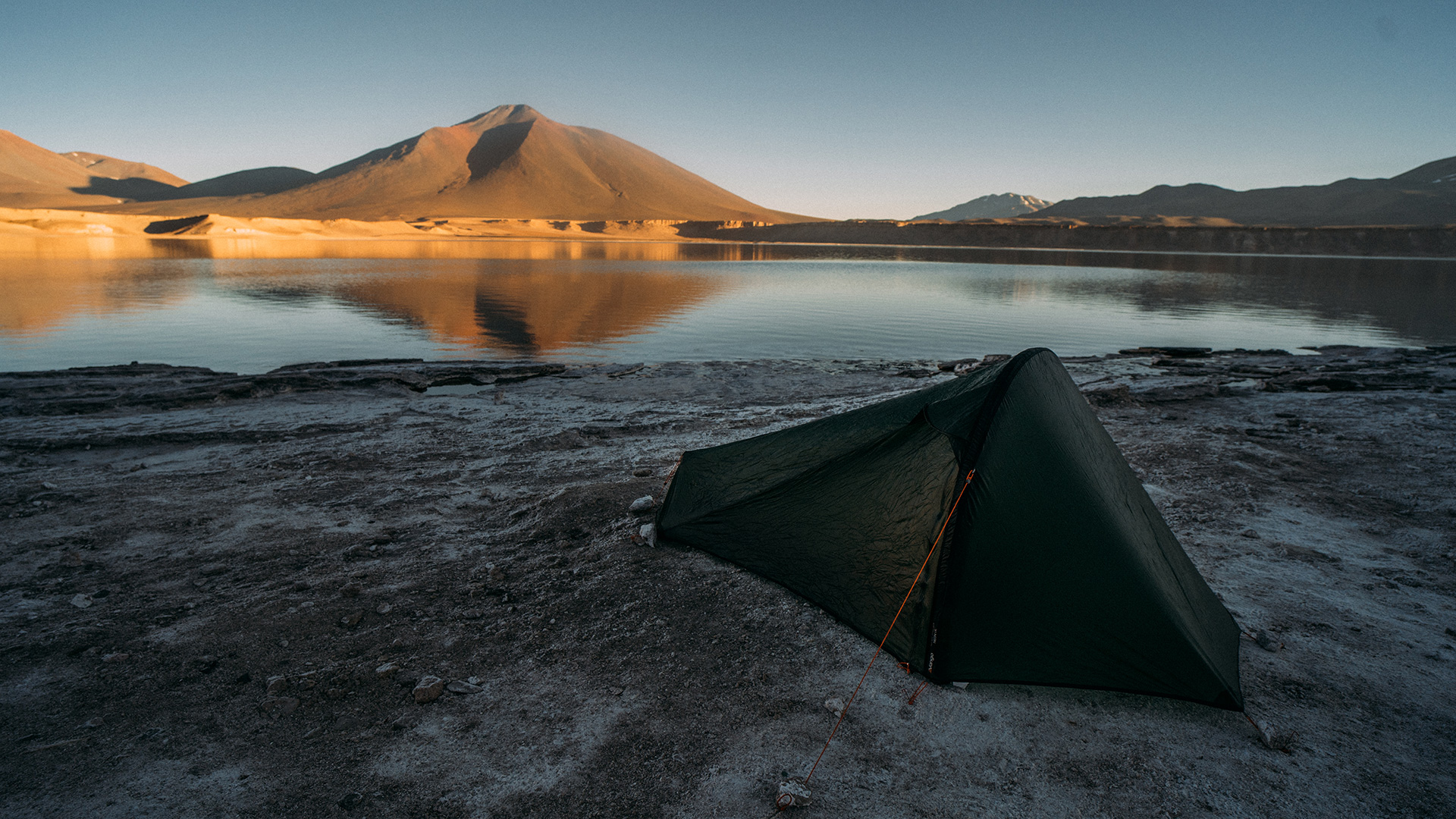
Vango Project Hydrogen review: alternatives to consider
We also rate Jack Wolfskin's Gossamer II one-person backpacking tent, which is far more affordable with an RRP of £165, but does pack on the pounds at 2.2kg. If you're keen to keep things below a kilo on fastpacking adventures, the Terra Nova Laser Compact 1 tent weighs 970g, and boasts a decent porch and mesh ventilation panels.
Vango also used to make the world's lightest poled backpacking tent – the Vango F10 Neon UL, which weighed just 465g and had a similar look and feel to the Project Hydrogen, but was less expensive. However, it's no longer part of the Vango range.
Vango F10 Project Hydrogen tent review: verdict
Vango's lightest tent offering is firmly aimed at fast and light adventurers, mountain racers and explorers heading out on multi-day expeditions. If you're in those categories, the F10 Project Hydrogen is an excellent tent that will do you proud in the back of beyond, and is well worth the investment if you plan to get out in the wild with it regularly. Everyone else could probably choose a tent that's less innovative – and less expensive.

Sian Lewis is an award-winning travel and outdoors writer, author and influencer. She's the author of popular blog and book The Girl Outdoors, and when
she isn't writing or travelling she spends most of her time hiking, cycling and wild swimming across Britain, testing out the latest adventure gear and clothing as she goes.